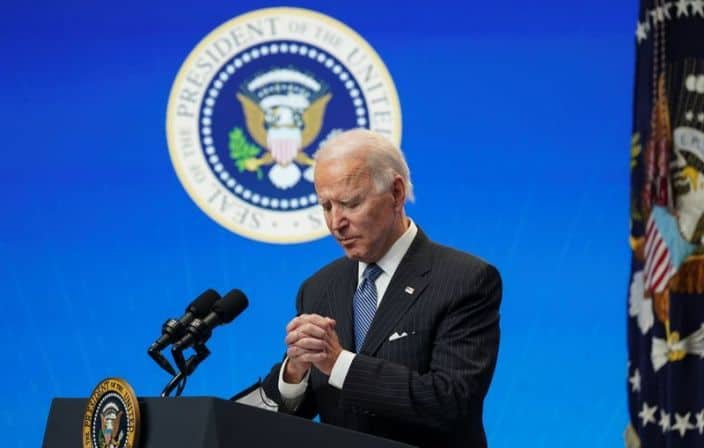
Rund Khayyat is a student at Harvard Law School.
President Biden issued an Executive Order Thursday to make it easier for Americans, and particularly those who rely on work-provided benefits, to access health insurance during the pandemic. The order will reopen the federal Obamacare marketplace and create a special enrollment period from Feb. 15 to May 15, offering a healthcare option to Americans who’ve recently lost coverage.
The Order will give Americans who missed the most recent sign-up period, which ended Dec. 15, access to Obamacare policies — and to federal assistance to pay for them. Roughly 15 million uninsured people could benefit, and nearly 9 million of them could qualify for free or subsidized coverage, according to the Kaiser Family Foundation. Bloomberg also reported that most of the 15 state-operated Obamacare marketplaces that extended their open enrollment periods during the pandemic, saw a surge of new applicants — particularly amongst Americans in their twenties. The numbers suggest that Americans who previously refrained from buying health coverage, are now reconsidering due to the risk of the virus.
The Order also directs agencies to re-examine Trump-era measures to weaken health care protections. These include policies that target individuals with pre-existing conditions, undermine health insurance markets, or that make it harder to enroll in Medicaid and the ACA. Agencies will also work to strengthen Medicaid and the ACA. The Executive Orders builds on more than two dozen that Biden already has signed during his first week in office.
Biden issued a second Order to curb the xenophobia, inflammatory rhetoric, and hate crimes that has endangered Asian Americans during the pandemic. The rise in hate comes after Trump used racially derogatory language that promoted anti-Asian bias and exclusion. For instance, he repeatedly called the coronavirus the “Chinese virus.” The U.S. Equal Employment Commission signaled that workplace harassment against Asian people could increase, as it did for Muslim Americans after the Sept. 11 attacks.
Though the Order doesn’t specifically provide higher workplace protections, it could have implications for employers and Asian American workers who have reported workplace harassment. By condemning xenophobic rhetoric and emphasizing the contributions of Asian Americans, Bloomberg reported that the Order “makes it easier for employers to advance workplace policies that are focused on respect and inclusion.” Biden also rolled back several Trump-era measures that banned diversity initiatives at companies. These moves send a signal to employers that the federal government may soon ramp up anti-discrimination enforcement.
The pandemic has hit Asian Americans particularly hard — those who lost their jobs have found it harder than most other groups to get them back. In the last quarter of 2020, almost half of jobless Asians had been out of work for at least 27 weeks, which is a greater share than White, Black or Hispanic Americans.
The reasons are largely economic and geographic. A July study by UCLA study reported that almost one in four Asian-American workers works in hospitality, retail, or other services such as salons and dry cleaners, which are among the sectors hardest hit by the pandemic. The number of Asian-owned small businesses also declined at disproportionate levels at the start of the pandemic. Moreover, almost one-third of Asian Americans live in California, which has some of the strictest pandemic restrictions in the county.
Finally, applications for U.S. state unemployment benefits fell last week, signaling that job cuts may be easing after surging in December and early January. Continuing claims, or the number of Americans filing for ongoing unemployment benefits, also dropped by 203,000 to 4.77 million in the week ending on Jan. 16.
Despite the decline, the initial claims numbers are still over four times the pre-pandemic levels. These numbers underscore the impact on employment from pandemic-related shutdowns. Economists continue to emphasize that unemployment isn’t likely to drop significantly until widespread inoculations allow service-industries to fully reopen. This week, California lifted stay-at-home orders, and New York indicated that it would ease restrictions, which may stem job cuts in the coming weeks.






Daily News & Commentary
Start your day with our roundup of the latest labor developments. See all
July 11
Regional director orders election without Board quorum; 9th Circuit pauses injunction on Executive Order; Driverless car legislation in Massachusetts
July 10
Wisconsin Supreme Court holds UW Health nurses are not covered by Wisconsin’s Labor Peace Act; a district judge denies the request to stay an injunction pending appeal; the NFLPA appeals an arbitration decision.
July 9
the Supreme Court allows Trump to proceed with mass firings; Secretary of Agriculture suggests Medicaid recipients replace deported migrant farmworkers; DHS ends TPS for Nicaragua and Honduras
July 8
In today’s news and commentary, Apple wins at the Fifth Circuit against the NLRB, Florida enacts a noncompete-friendly law, and complications with the No Tax on Tips in the Big Beautiful Bill. Apple won an appeal overturning a National Labor Relations Board (NLRB) decision that the company violated labor law by coercively questioning an employee […]
July 7
LA economy deals with fallout from ICE raids; a new appeal challenges the NCAA antitrust settlement; and the EPA places dissenting employees on leave.
July 6
Municipal workers in Philadelphia continue to strike; Zohran Mamdani collects union endorsements; UFCW grocery workers in California and Colorado reach tentative agreements.